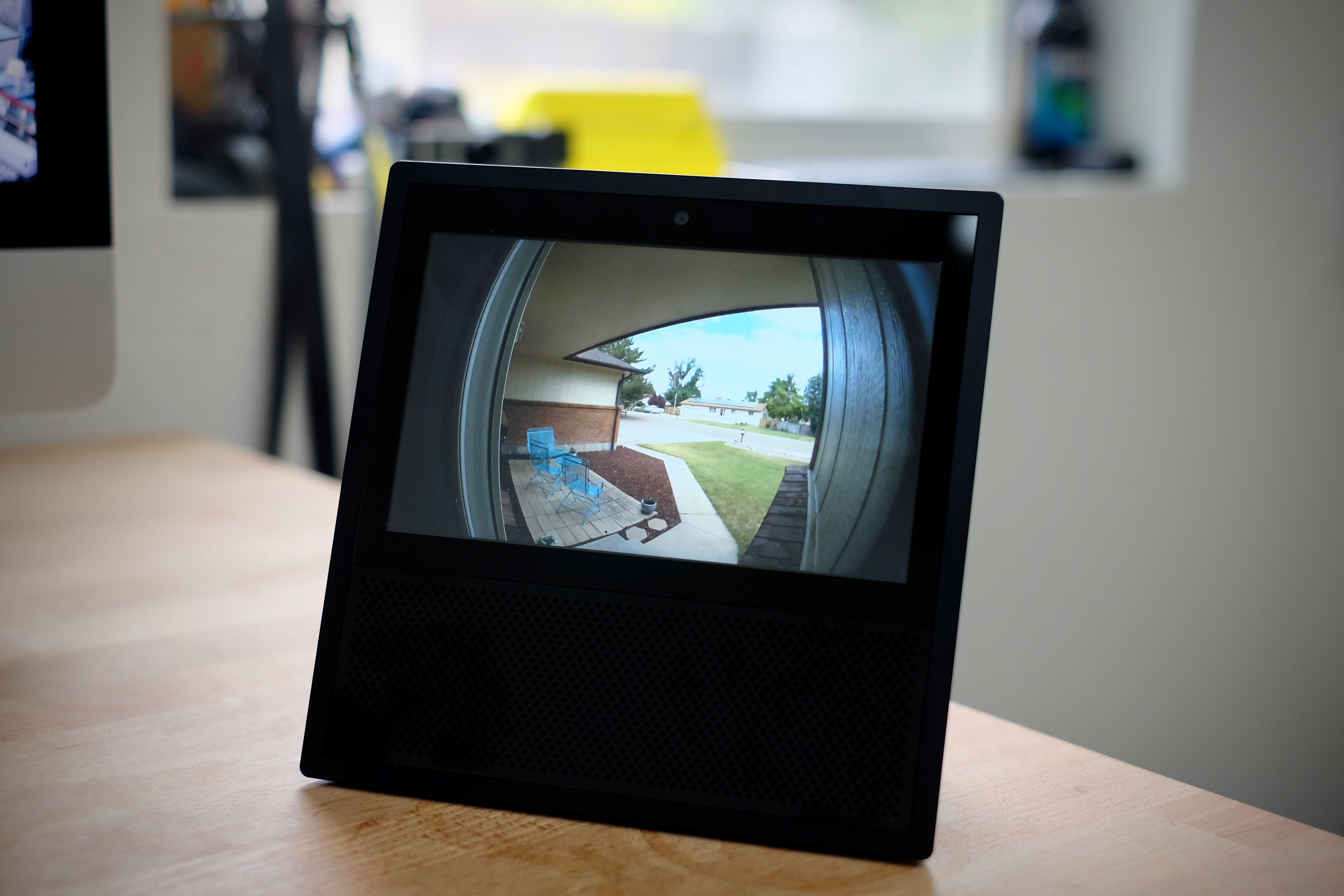The Echo Show looks like the desktop PC of the future

Amazon's Echo Show with a live stream of my Ring Video Doorbell Pro camera.
Things are probably a bit awkward when the various voice agents get together and the talk turns to mobile. Siri and Google Assistant can go on about how they're in millions of phones. Cortana can look back nostalgically on a run across two generations and Microsoft phones, and even Bixby can show off its fancy new dedicated button that people just can't stop pushing (even when they want to).
But Alexa can speak only of how it has found its way onto an HTC device that it shares with two roommates. "Yeah," it shrugs, "Amazon had a phone once. I'd rather not talk about it." "Besides," Alexa continues, "I had nothing to do with that. Amazon's AI breakthrough of the day was Firefly."
See also: This Amazon Echo hack can make your speaker spy on you, say security researchers | Robotic suit now has Amazon Echo integration | Amazon Echo Show review: A smart speaker that shows up the competition
"But, hey," Amazon's voice agent says, "I've got a lot of great stuff going on. Developers are building skills for me at a breakneck pace. Anker has brought down my price of entry to the point where lots of people can afford access to me around the home. Remember the magic mirror in Snow White? Check out the Echo Look -- no magic Apple required."
It's all good. But the most transformative turn of events for Amazon's voice agent has been giving it a face in the Echo Show. The Echo Show throws the momentum of voice agents into the murky waters of small screens in the home. It looks like a taller version of Sony's Dash player, an Internet appliance that was focused on video and music services (both of which the Echo Show can deliver).
While the Echo Show is all but bereft of any productivity features, it seems very much a forerunner of the desktop PC of the future. It is not, like Apple TV, a smartphone experience on a bigger display, but rather -- for now -- a great complement to the smartphone. Indeed, in a sign of the work that Amazon still has to do on the Show, much of it must be configured via the Alexa app, which seems silly when you have a touchscreen on the device.
When the first Echo appeared, it seemed like a bit more than a parlor trick of a device, a disembodied Siri (which Apple will soon deliver in a beefier package). But Amazon's position as an app store straggler has enabled the company to strongly pursue Siri's weakest aspect by driving integrations with third-party services -- even as Amazon competes with some of them.
Even better, the experience is blissfully free of the constant barrage of notifications and app management that make the smartphone at once so compelling and distracting. In fairness to iOS and Android, though, much of this is because the Echo Show doesn't readily support many of the culprits of smartphone interruptions -- e-mail, messaging apps, social media apps and querulous games.
And that raises the question. With all that Alexa can do and what it could reasonably take on, could it drive a smartphone experience that would represent a new start for Amazon in the smartphone world? It wouldn't be easy, and I'll point out the challenges in a future column.
